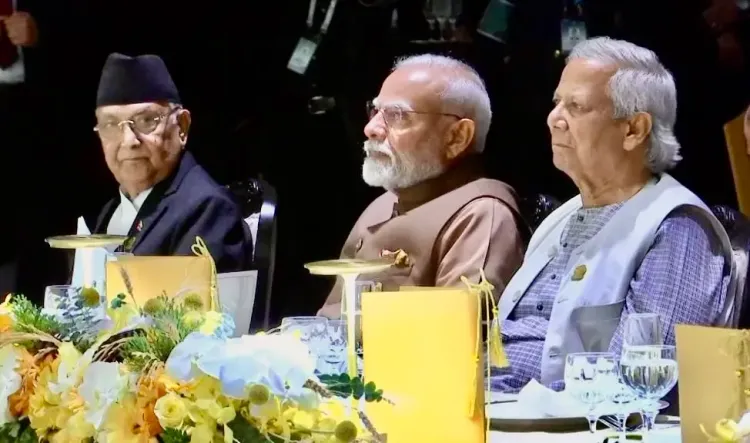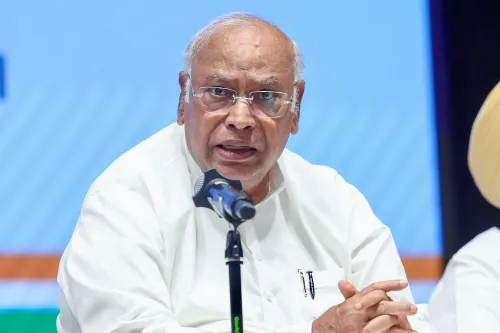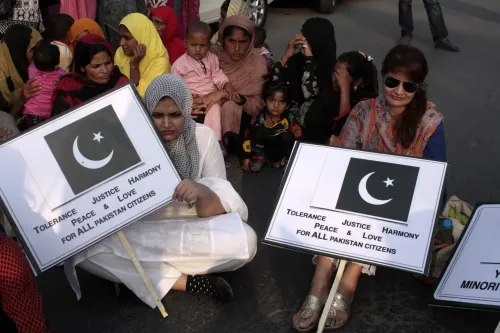Revitalizing Security Policies and Modernizing Defense — India’s Path to Address Emerging Security Challenges in the Region

Synopsis
Key Takeaways
- India suspends the Indus Waters Treaty following a terror attack.
- High Commission in Islamabad reduced in size.
- Regional instability poses serious security challenges.
- Reinvigoration of 'Neighbourhood First' policy is crucial.
- Military modernization remains a top priority for India.
London: In the wake of Tuesday's devastating terror attack in Pahalgam, attributed to a covert faction of the Pakistan-affiliated Lashkar-e-Taiba (LeT), India has initiated several security measures against Pakistan. This includes the suspension of the Indus Waters Treaty of 1960, which has endured through three conflicts between the two nations.
The relationship between these two nuclear-capable nations has long been characterized by tension; however, attempts to foster normalcy through diplomatic engagement persist.
In response to this recent attack, India has also opted to downsize its High Commission in Islamabad from 55 personnel to 30. This reduction includes naval and air advisors, while their counterparts in New Delhi have been declared persona non grata and instructed to leave the country immediately.
Another instance of such heightened tension occurred with China following the Galwan Valley clash in 2020. Although efforts to establish 'normalcy' through diplomatic channels are ongoing, the rivalry remains due to conflicting interests in the region.
These occurrences cannot be examined in isolation from the instability affecting India's neighbourhood. In recent years, many neighbouring countries have experienced upheaval—Myanmar faced a military coup in 2021, Sri Lanka underwent a financial crisis in 2022, and most recently, the collapse of Sheikh Hasina's government in Bangladesh in 2024. The political dynamics in these nations have increasingly favoured China over India, with some neighbours, like the Maldives, even campaigning on anti-India sentiments.
Despite India's rising geopolitical stature and economic strength, being encircled by such unstable neighbours presents a significant security challenge that the regional power must confront.
Potential solutions will necessitate long-term, sustained efforts and a reinvigoration of the 'Neighbourhood First' policy. Historically, Indian foreign policy has prioritized relations with its neighbours, and a renewed commitment to this priority is crucial at this juncture. Prime Minister Narendra Modi's recent participation in the BIMSTEC Summit in Thailand exemplifies these efforts.
The Indian Armed Forces are recognized as one of the leading militaries globally, yet ongoing tensions along its land borders with two neighbours exert considerable pressure on defence capabilities. While military modernization has been a focus in recent years through 'Make in India' initiatives, there remains much to improve. Priorities include diversifying defence imports, modernizing Soviet-era equipment, and increasing overall investment.
India has historically been hesitant to engage actively in defence-based treaty alliances, which is understandable given its desire for strategic autonomy. However, with renewed US interest in the QUAD, and the imperative for India to manage the Chinese threat in the Indo-Pacific, New Delhi must navigate these waters judiciously. While autonomy remains paramount, there are significant benefits to be gained from stronger defence partnerships in the region.
Since gaining independence, one of India’s most significant assets in international relations has been its leadership within the Global South. It pioneered non-alignment and continues to advocate for its principles today. India has consistently opposed unipolarity and champions a rules-based international order. As the world’s largest democracy for over 75 years, emphasizing collaboration over dominance captures the essence of India’s global stance. A meaningful blend of hard and soft power is essential for recalibrating in this rapidly evolving world order.
(Saniya Kulkarni is a Programme Manager at LSE IDEAS, a foreign policy think tank of the London School of Economics and Political Science. The views expressed are personal)









